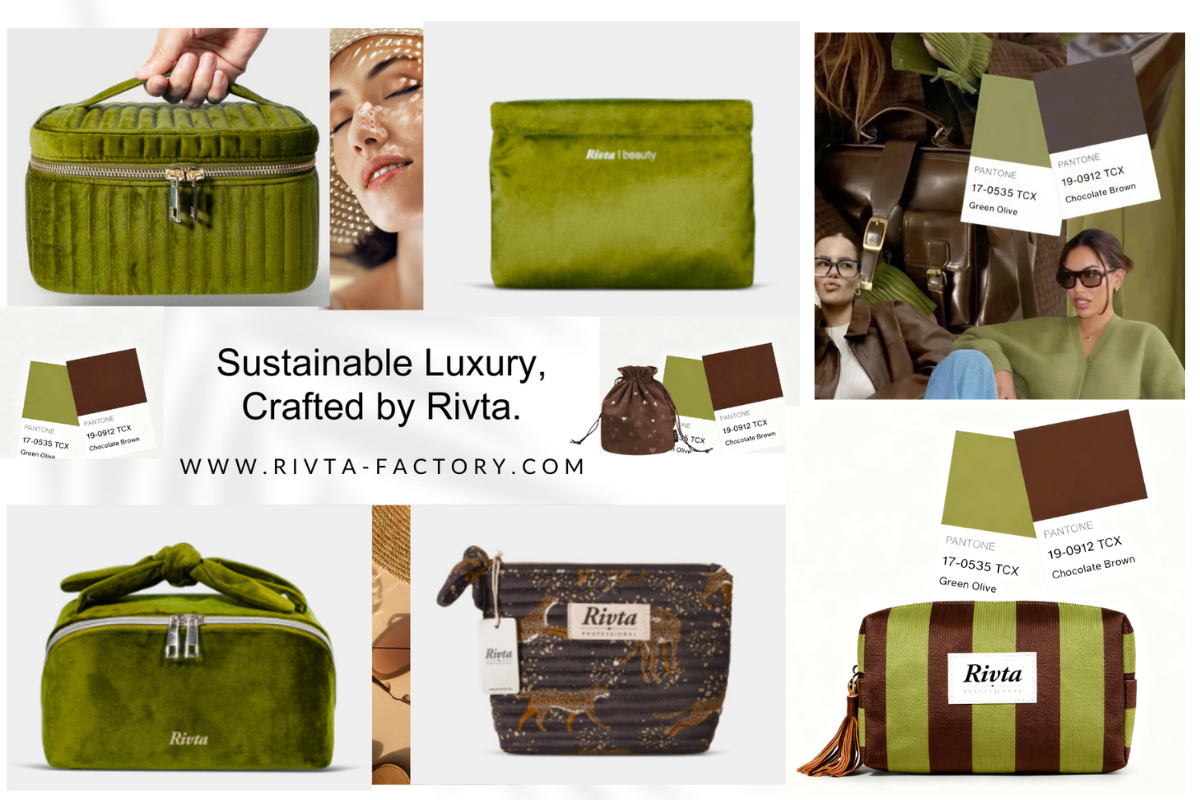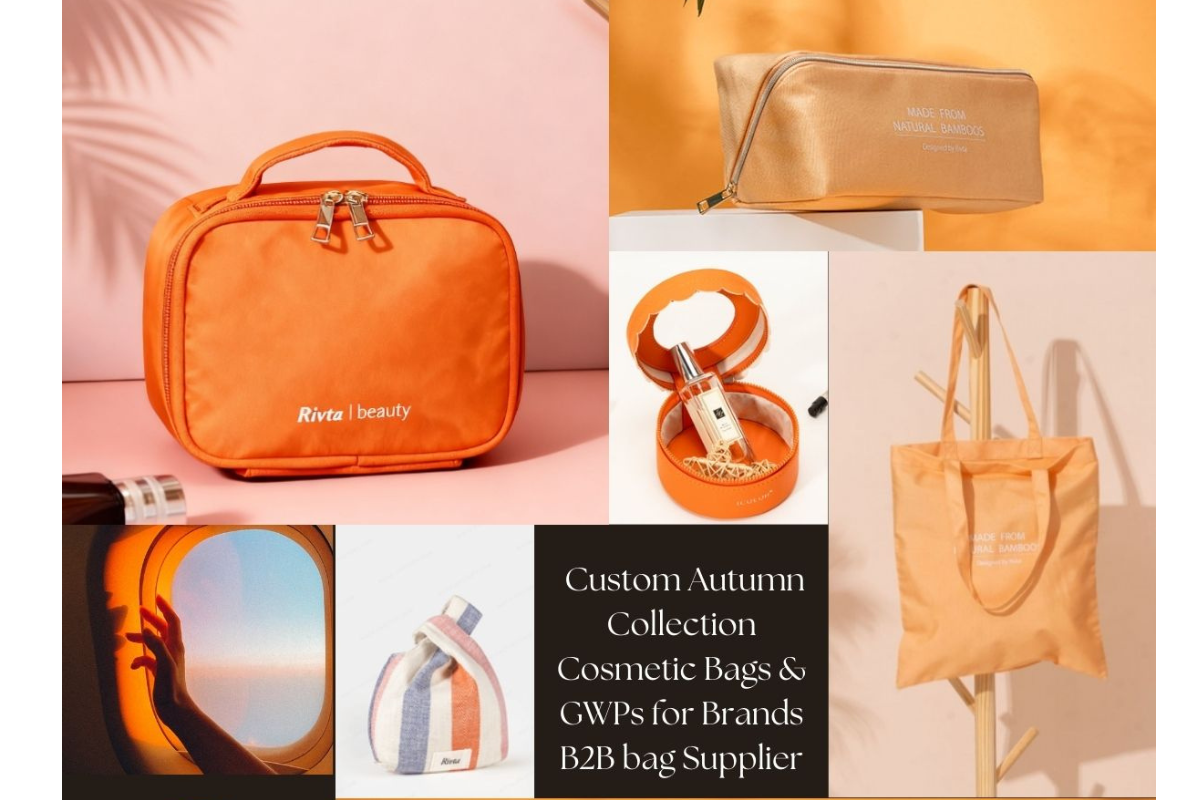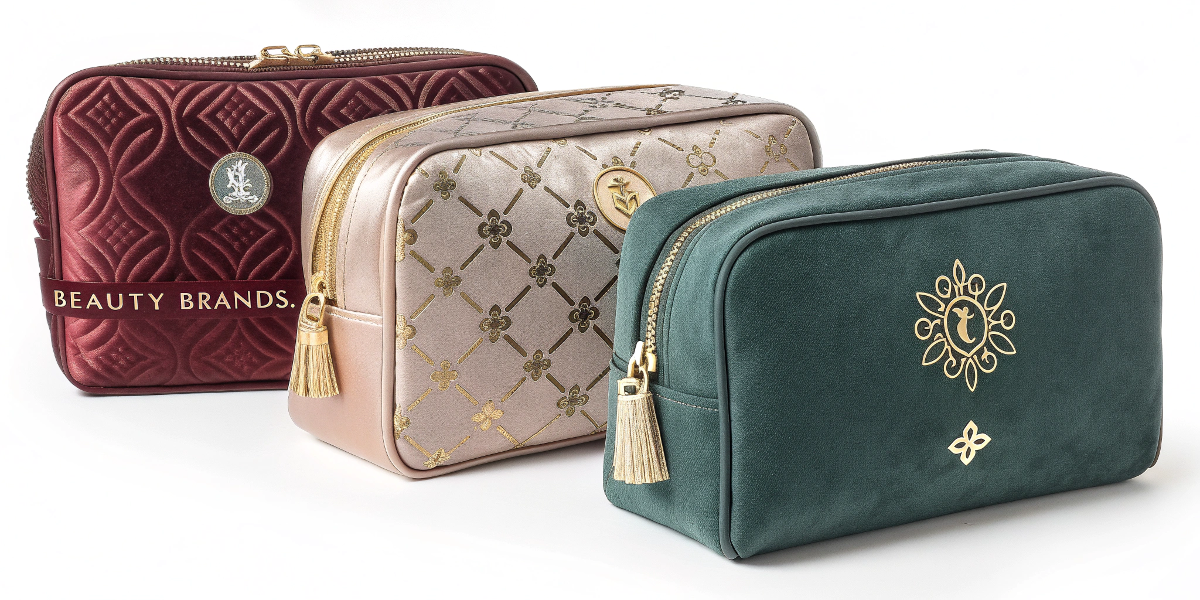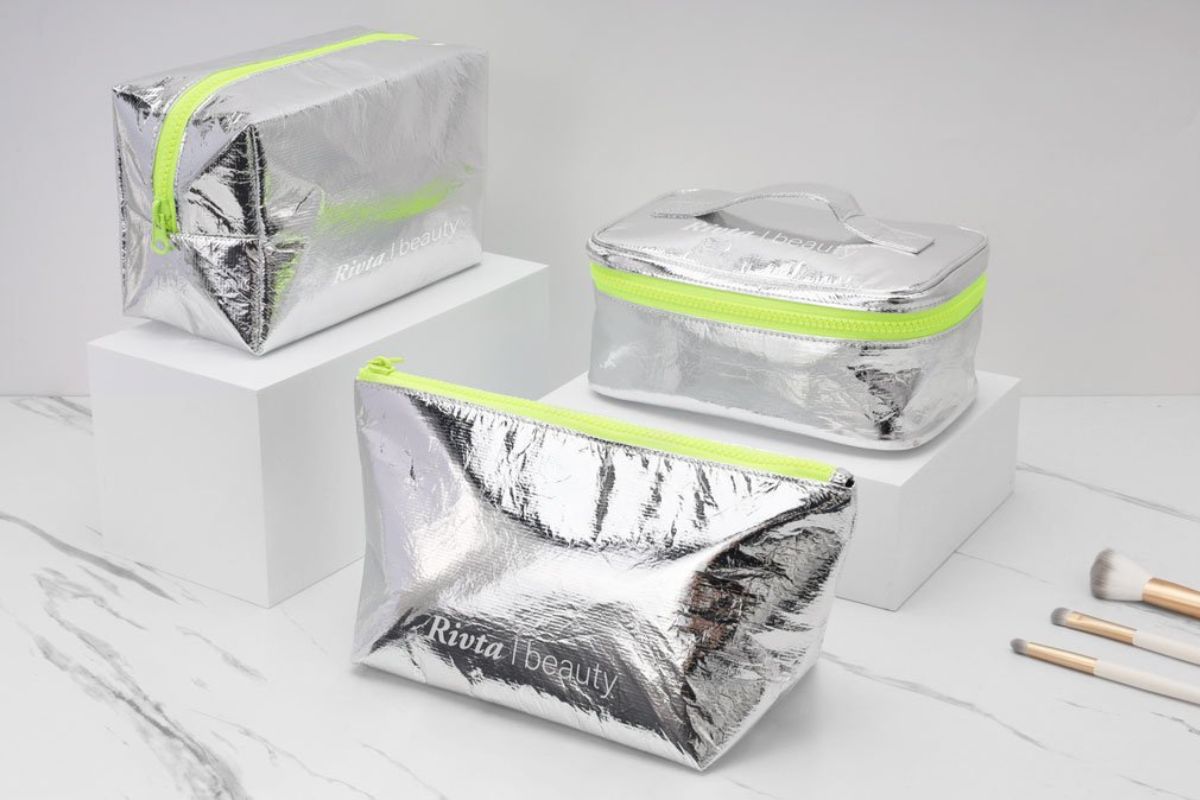How Do You Launch a Private Label Cosmetic and Makeup Bag Line?
Starting a private label line feels complex. You worry about creating a generic product that gets lost in the market. I will show you the clear, step-by-step process we use.
To launch a private label cosmetic bag line, you must first build a strong brand identity. Then, design the physical product by choosing its function and materials. Finally, find a reliable manufacturing partner.
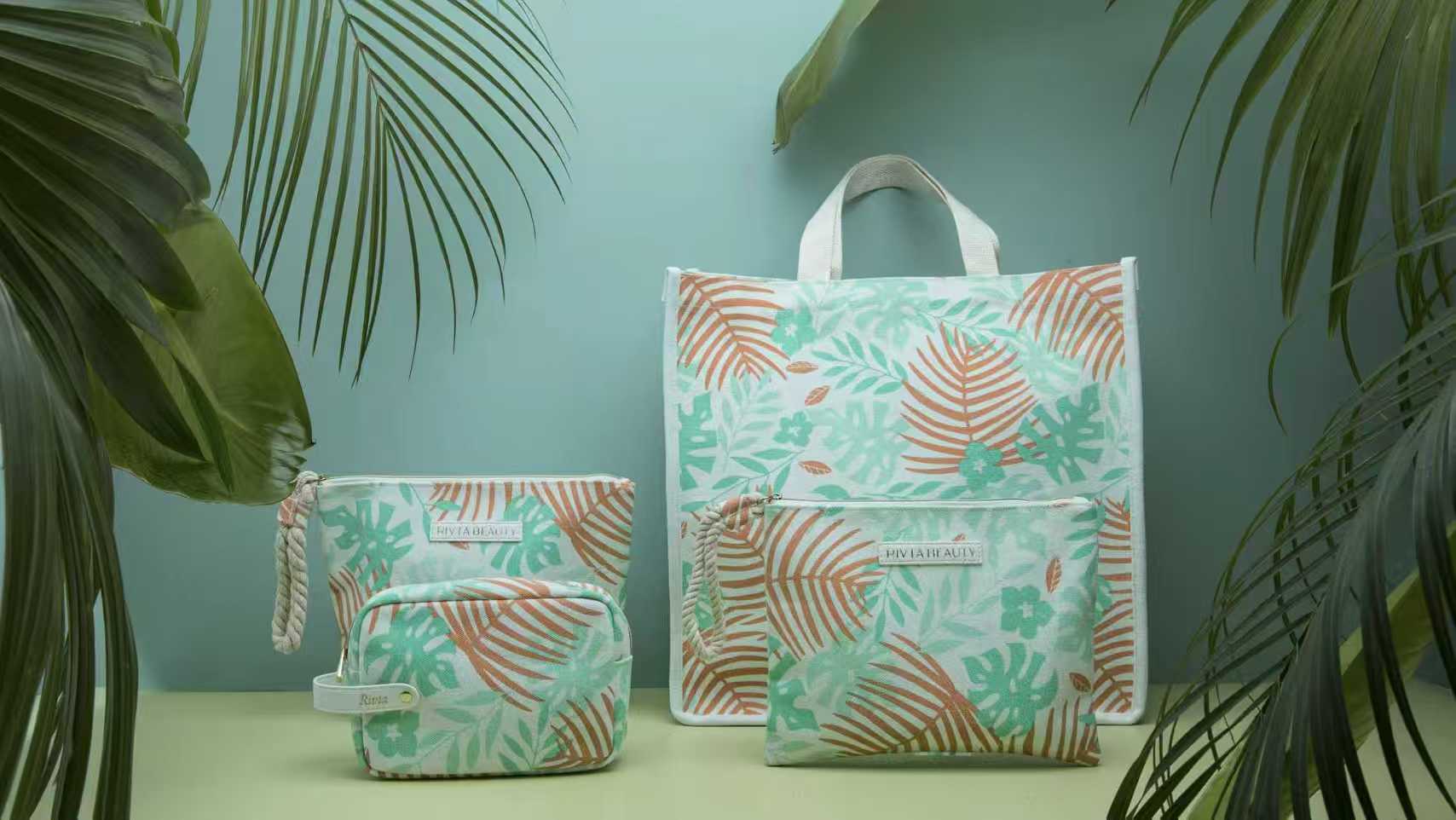
As a vanity case manufacturer for over 30 years, I've had a front-row seat to success. I have guided project managers like Jennie as they transform a simple idea into a best-selling product line. The secret isn't magic; it's a logical process. An excellent cosmetic bag is more than a container; it is a tangible piece of your brand's story. Let me walk you through the exact steps we use with our clients to turn their vision from a sketch into a high-quality product ready for the market.
How do you design your brand identity first?
You want to launch your cosmetic bag line, but feel lost? A weak identity means no connection with customers. A strong brand foundation is the key to every successful design decision.
Design your brand by defining your core mission, your ideal customer, and what makes you unique. This foundation guides everything from product features to your logo, ensuring a consistent and compelling brand story.
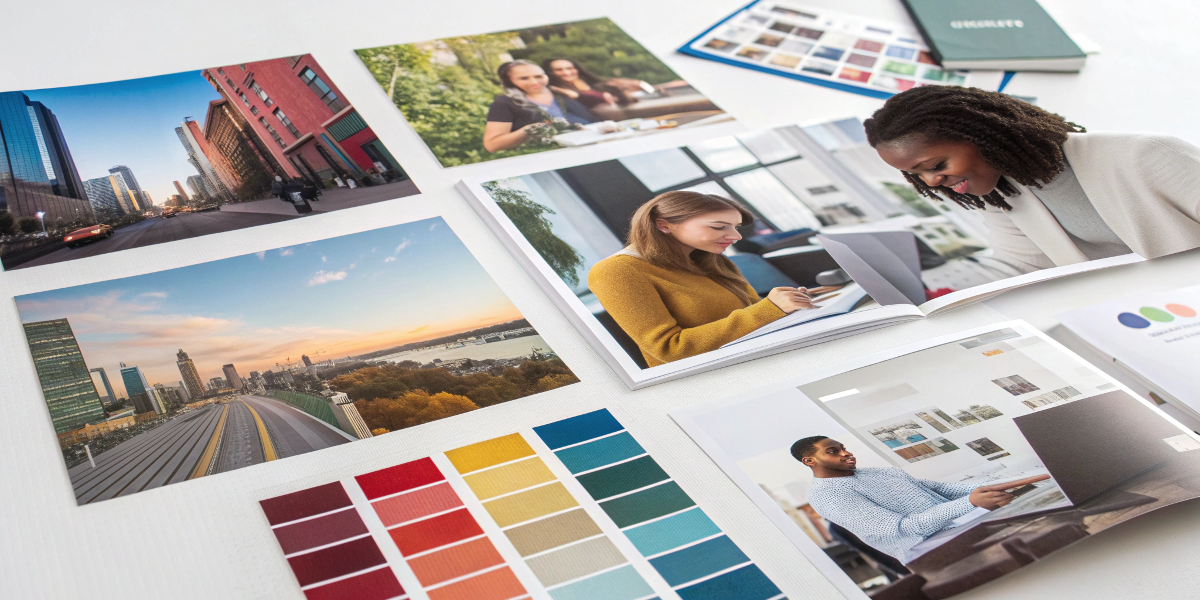
Before we talk about fabrics or zippers, we must talk about your brand's soul. A private label cosmetic bag is packaging. Its most important job is to represent the brand it holds. The most successful brands I’ve worked with, like the ones Jennie designs for, start with a crystal-clear understanding of who they are and who they serve. They do not try to be everything to everyone. Their focus is their strength. This clarity is what allows them to create a product that feels special and intentional, commanding a premium price and loyal customers.
The Three Pillars of Your Brand
Your brand needs a strong foundation to be successful. If you can answer these three questions clearly, every other design choice for your branded cosmetic pouch will become much easier. This is the strategic work that ensures your product has a reason to exist.
| Pillar | Core Question | Example for a Luxury, Sustainable Brand |
|---|---|---|
| Your "Why" | What is the core mission or purpose behind your brand? | To offer elegant beauty accessories that are ethically made and have a minimal environmental impact. |
| Your Target Customer | Who is the specific person you are creating this for? | The conscious luxury consumer who researches brands and values quality, transparency, and sustainable design. |
| Your USP | What makes you different from all the other brands? | We exclusively use GRS-certified recycled materials and custom-designed, low-impact hardware in all our products. |
Getting this part right is everything. Every detail, from your logo to the lining inside your cosmetic bag, should directly support the answers to these questions.
How do you design the perfect private label cosmetic bag?
You have a brand concept, but turning that idea into a real product is tough. The wrong material or a poorly placed pocket can ruin the user experience. Let's focus on the critical details.
Design the physical cosmetic bag by defining its purpose, choosing the right material, and selecting key features. Decide if it's for travel or daily use, select fabrics like RPET for sustainability, and add practical interior pockets.
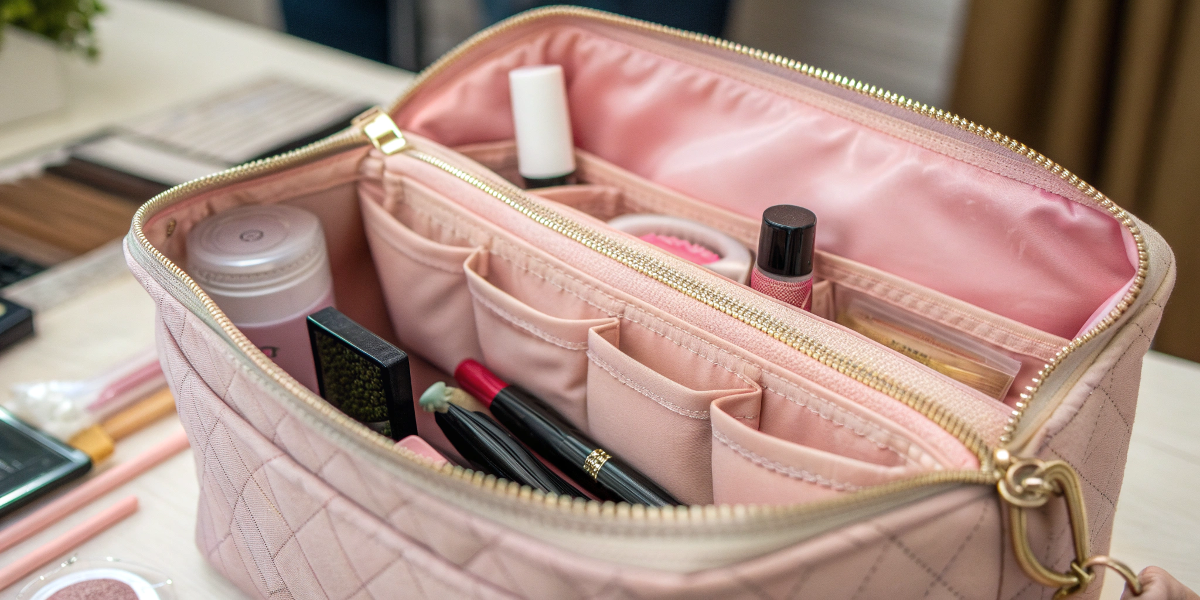
This is where your brand strategy meets real-world manufacturing. The choices you make here will determine how your customer uses and feels about your product every single day. A designer like Jennie understands this well. She knows that a large vanity case for a professional makeup artist needs different features than a small pouch for a teenager's backpack. Function must always come first. The "tech pack" is the blueprint for your bag. It is a detailed document you give to a manufacturer like me that specifies every single component of the design, ensuring we create exactly what you envisioned.
From Concept to Tech Pack
| Design Element | Key Decisions to Make | Why It Matters for a Premium Brand |
|---|---|---|
| Function & Size | Will it be for travel, daily use, or professional storage? What needs to fit inside? | The size and shape must feel sense for the intended purpose. This shows you understand your customer's needs. |
| Material Choice | What fabric fits your brand, budget, and sustainability goals? (e.g., GRS-certified RPET, organic cotton, PU leather) | The material is the first thing a customer touches. It communicates quality, durability, and your brand's values. |
| Features & Hardware | What kind of zipper, lining, pockets, and handles do you need? What about the finish on the hardware? | These small details elevate the product from basic to luxury. A smooth zipper and a thoughtful pocket layout greatly enhance usability. |
We always advise our clients to think about the complete user experience. Will a waterproof lining be helpful? Does it need elastic loops to hold brushes? These functional choices are just as important as the color or pattern.
How can you create a memorable logo for custom logo makeup bags?
Your logo is your brand's face, but a bad one looks amateur. It needs to be professional and versatile, or it will fail when applied to a physical product. Let’s make it work everywhere.
Create a memorable logo by keeping it simple, recognizable, and appropriate for your brand. Choose a clear font and a color scheme. Ensure the final design is versatile enough to be printed, embroidered, or debossed on your custom logo makeup bags.
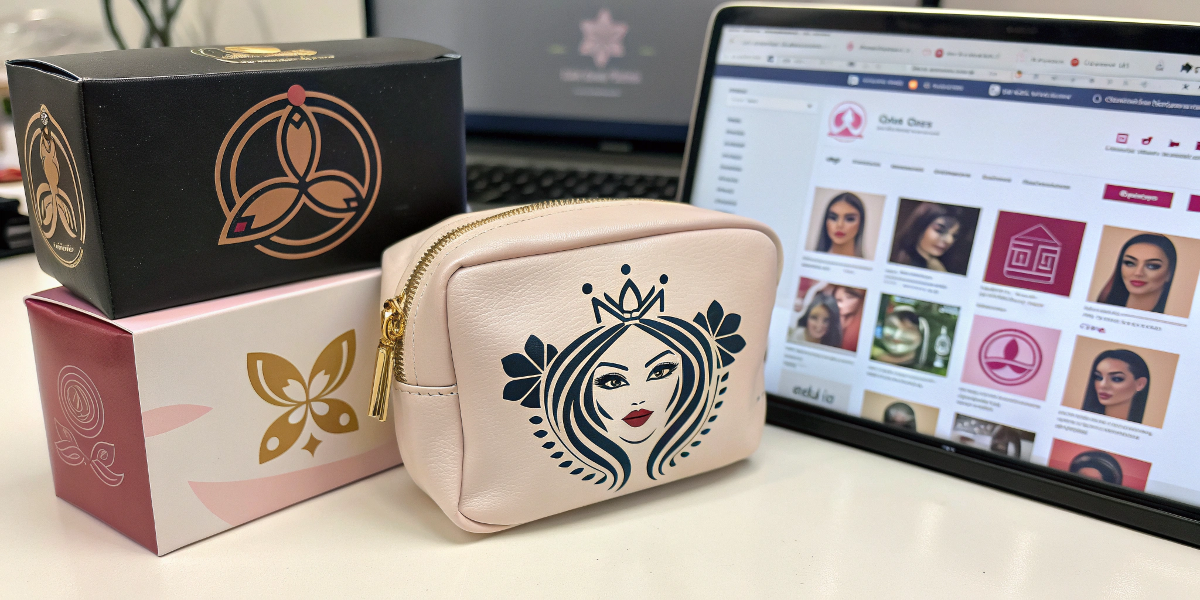
I have seen thousands of logos applied to the products we’ve made. The best ones are always the simplest. They are easy to read and instantly recognizable, even from a distance. Complex logos with gradients or tiny details are hard to reproduce on fabric and can look messy or cheap. Your logo for a collection of custom logo makeup bags must work in many different sizes and on various materials, from a tiny zipper pull to a large dust bag. This versatility is non-negotiable for a professional brand.
Elements of a Strong, Versatile Logo
A great logo is a strategic tool. When designing, focus on these characteristics to create something effective, scalable, and lasting. Consider how the logo will be applied to the final product.
| Characteristic | What It Means for a Makeup Bag | Tip |
|---|---|---|
| Simple & Clean | It can be easily embroidered, screen-printed, or debossed without losing detail. | Avoid thin lines, complex graphics, and multiple overlapping colors. |
| Memorable | A customer can recall it after seeing it once. | A unique wordmark or a simple, strong symbol works best. |
| Versatile | It looks good in one color and at any size, from a 1cm zipper pull to a 15cm print. | Test your design in black and white and at very small and large sizes before finalizing it. |
| Appropriate | It visually matches your brand's personality (e.g., sleek and minimalist, or playful and bold). | The font and style should align with the brand identity you defined in the first step. |
If you are not a designer, hire a professional for this. A good freelance designer who understands branding for physical products can be a valuable investment.
How do you find the right makeup bag private label manufacturer?
You have a great design, but finding a reliable partner is scary. A bad manufacturer can cause poor quality, delays, and lost money. Partnering with the right factory is crucial for success.
Find the right makeup bag private label manufacturer by checking their certifications (like GRS or Sedex), reviewing their portfolio of similar products, and evaluating their communication and sampling process. A good partner will act as your guide.
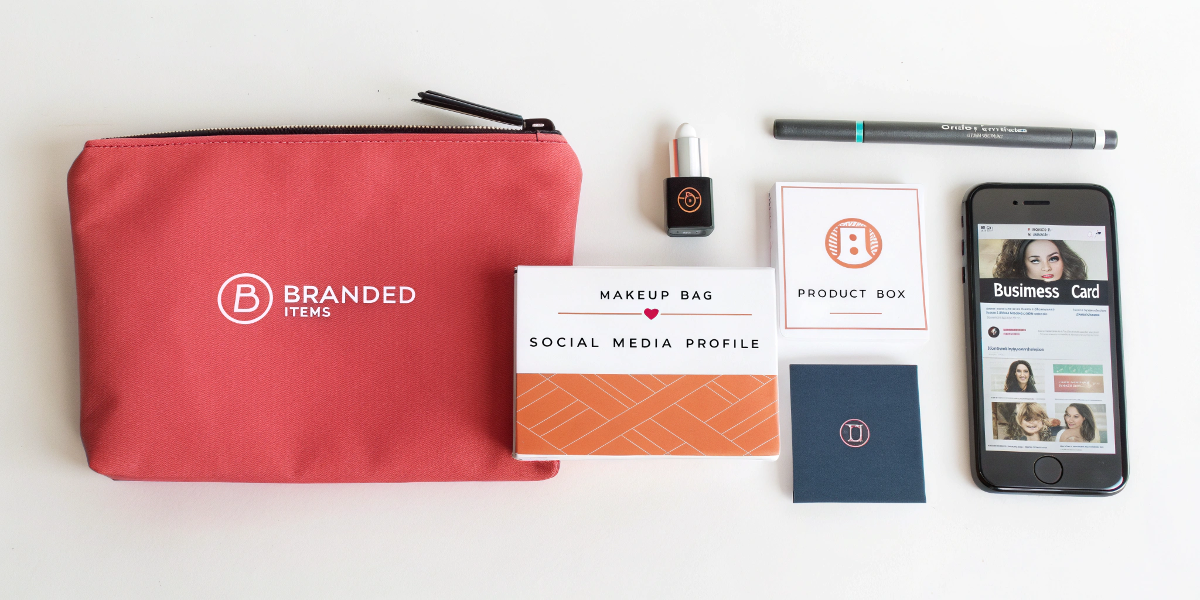
Your manufacturer is your most important partner in the private label process. They are the ones who will bring your vision to life. A great partner does more than just follow instructions; they provide expert advice, help solve problems, and ensure your final product meets the highest standards of quality. For a brand focused on sustainability and luxury, like the ones Jennie works with, finding a manufacturer who shares those values is essential. You need a partner who understands the specific requirements of eco-friendly materials and high-end finishing.
Key Areas to Evaluate in a Partner
| Evaluation Area | What to Look For | Why It Is Important |
|---|---|---|
| Certifications | Look for GRS (Global Recycled Standard), OEKO-TEX, and social compliance audits like Sedex or BSCI. | These prove the manufacturer's commitment to sustainable materials and ethical labor practices, which builds brand trust. |
| Experience & Portfolio | Ask to see examples of products they have made for other brands, especially in your niche (luxury, eco-friendly). | This shows they have the technical skill and machinery to produce the quality you require for your makeup bags. |
| Communication | Are they responsive, clear, and proactive? Do they understand your brand's vision and requirements? | Good communication prevents costly misunderstandings and delays. You need a partner, not just a supplier. |
| Sampling Process | They should have a clear, collaborative process for creating and revising prototypes and pre-production samples. | The sampling stage is where you perfect your product. A good partner will work with you to get every detail right. |
This vetting process ensures you build a long-term, trusted relationship, which is the foundation of any successful makeup bag private label business.
Conclusion
From a strong brand idea to the final product, launching a private label bag is about process. Define your identity, design with purpose, and find a great manufacturing partner.
